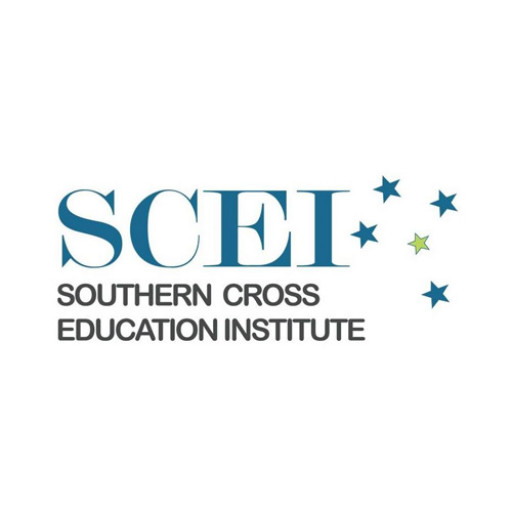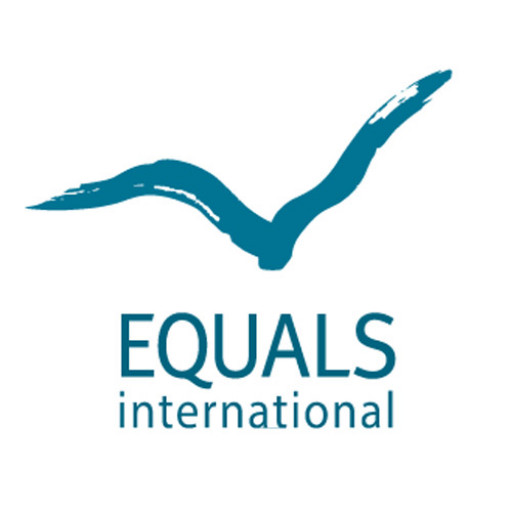The Diploma of Nursing at TAFE South Australia is a comprehensive program designed to prepare students for a rewarding career in the healthcare sector as registered nurses. This course provides learners with the essential theoretical knowledge and practical skills needed to deliver high-quality patient care across diverse healthcare settings, including hospitals, community clinics, and aged care facilities. Students will engage in a balanced curriculum that covers fundamental nursing principles, human anatomy and physiology, medical-surgical nursing, mental health, pediatric care, and aged care. The program emphasizes hands-on clinical practice, allowing students to apply their learning in real-world environments under the supervision of experienced healthcare professionals. Throughout the course, students develop critical thinking, effective communication, and problem-solving skills necessary for assessing patient needs, implementing care plans, and advocating for the well-being of their patients. The diploma also focuses on fostering professional and ethical standards aligned with Australian healthcare regulations and policies. Graduates of this program are well-equipped to sit for the licensing examination required to register as a Registered Nurse (Division 1) with the Australian Health Practitioner Regulation Agency (AHPRA). TAFE SA's supportive learning environment includes state-of-the-art simulation labs, modern classrooms, and access to clinical placements that provide invaluable practical experience. The program's flexible study options, including full-time and part-time modes, ensure accessibility for a diverse range of students. Upon completion, graduates have the opportunity to pursue further specialization or move into the workforce with confidence, making a positive impact on community health and individual patient outcomes. The Diploma of Nursing at TAFE South Australia is an excellent pathway for those passionate about healthcare and committed to making a difference in people's lives through compassionate and competent nursing care.
The Certificate IV in Nursing provided by TAFE South Australia is a comprehensive qualification designed to prepare students for a career in healthcare as a Registered Nurse. This program offers a blend of theoretical knowledge and practical skills essential for delivering quality patient care across a variety of healthcare settings. Throughout the course, students will develop a strong understanding of nursing principles, including anatomy and physiology, medication administration, health assessment, and evidence-based practice. The curriculum emphasizes the importance of ethical practice, cultural safety, and patient-centered care, ensuring graduates are equipped to handle diverse community needs.
The program covers key areas such as communication skills, teamwork, infection control, and health promotion, critical for effective interaction within multidisciplinary healthcare teams. Practical placements are integrated throughout the course, providing students with hands-on experience in real-world environments such as hospitals, community health centers, and aged care facilities. These placements enable students to apply their theoretical knowledge, develop clinical reasoning, and refine patient management skills under the supervision of experienced healthcare professionals.
Students will also learn about legal and ethical considerations in nursing, professional standards, and how to support clients with varying health needs, including vulnerable populations. The program is designed to foster critical thinking, reflective practice, and lifelong learning habits, preparing graduates for the dynamic healthcare environment. Upon successful completion, students are eligible to register with the Australian Health Practitioner Regulation Agency (AHPRA) as a nurse, opening pathways to diverse employment opportunities in the healthcare sector.
The Certificate IV in Nursing at TAFE SA is suitable for individuals passionate about making a difference in people's lives through healthcare. It offers a supportive learning environment with trained educators, state-of-the-art facilities, and industry connections that enhance employment prospects. Whether you're starting your nursing career or seeking to upgrade your skills, this program provides a solid foundation to thrive as a professional nurse dedicated to improving health outcomes in the community.
Program requirements for the Diploma of Nursing at TAFE South Australia typically include successful completion of a range of prerequisite courses and assessments to ensure candidates are prepared for the rigorous demands of the program. Applicants are generally required to have completed relevant prior education, such as a high school qualification equivalent to Australian Year 12, with strong academic performance in English, Science, and Mathematics subjects. Additionally, applicants may need to demonstrate current Working with Children Check and Police Clearance certificates to ensure suitability for working with vulnerable populations.
An application form must be submitted along with a personal statement outlining motivation and interest in nursing, as well as evidence of any relevant volunteer or work experience in health-related fields. Some programs may require a minimum age of 18 years to ensure maturity and capacity for patient care responsibilities. English language proficiency is often assessed through standardized tests like IELTS, with a required score typically around 6.0 to 7.0 overall, depending on the program specifics.
Candidates might also be asked to participate in an interview process to assess their communication skills, empathy, and commitment to the healthcare profession. Following admission, students are expected to complete a series of theoretical coursework, practical clinical placements, and assessments as part of the curriculum. These clinical placements are usually undertaken in hospital and community health settings, requiring students to demonstrate competency in patient care, medication administration, and health promotion activities.
In terms of health and professional standards, students must provide evidence of immunizations against communicable diseases such as influenza, hepatitis B, and tuberculosis, to ensure safety during clinical practice placements. They are also expected to adhere to ethical and professional codes of conduct established by the nursing profession in Australia. Attendance and participation in all scheduled classes, workshops, and clinical placements are mandatory to meet program requirements.
Furthermore, there might be fitness assessments to ensure students are physically capable of performing nursing duties effectively and safely. Some programs recommend or require students to complete first aid and CPR certification prior to clinical placements to enhance their readiness for immediate response in emergency situations. Overall, prospective students should review TAFE SA's specific entry criteria and pathway information for the most accurate and detailed program requirements, as these can vary slightly from year to year and between different cohorts.
The financing of the Nursing program at TAFE South Australia is structured to support students through various financial options, including government funding, payment plans, scholarships, and financial assistance schemes. As a public vocational education provider, TAFE SA often collaborates with government initiatives to reduce the financial burden on students aspiring to enter the nursing profession. Eligible students can access government subsidies such as VET Student Loans, which significantly offset the cost of tuition fees for approved diploma and certificate courses. This loan scheme allows students to defer the payment of tuition fees until after they complete their studies and are earning above a certain income threshold.
In addition to government loans, TAFE SA provides flexible payment options, including payment plans that enable students to spread the cost of their studies over multiple installments, making education more accessible and manageable. These plans are particularly helpful for students who prefer to budget their expenses over the duration of their course. Scholarships and grants are also available to support nursing students who demonstrate outstanding academic achievement or meet specific eligibility criteria, such as Indigenous status or financial hardship. These scholarships can reduce the overall financial burden and provide additional motivation for students to excel in their studies.
Furthermore, many students combine part-time work with their studies to finance their education, as TAFE SA’s flexible scheduling allows for evening and weekend classes that accommodate employment hours. Some students may also qualify for external financial assistance or support programs offered by state and federal governments aimed at fostering healthcare workforce development. Overall, the financial structure of the Nursing program at TAFE SA is designed to ensure that interested individuals from diverse backgrounds can access quality nursing education without facing insurmountable financial barriers. The institute actively advises students on available funding options and assists with application processes to maximize their financial support opportunities, ensuring a pathway to a rewarding career in healthcare.
The Nursing program at TAFE South Australia (TAFE SA) provides students with comprehensive training and education to prepare them for a career in nursing. The program is designed to equip students with the necessary skills, knowledge, and practical experience required to work as a registered nurse in various healthcare settings. It incorporates a combination of classroom learning, simulated practice, and hands-on clinical placements, ensuring that graduates are well-prepared to deliver high-quality patient care.
The curriculum covers a wide range of topics, including human anatomy and physiology, microbiology, pharmacology, ethics and legal issues in healthcare, mental health nursing, community health, and acute care. Students also learn essential skills such as effective communication, clinical assessment, patient safety, and evidence-based practice. This holistic approach aims to develop both the technical competencies and the compassionate, ethical qualities necessary for nursing professionals.
The program is typically delivered over a specified period, often spanning several semesters or years, depending on the mode of study (full-time or part-time). TAFE SA emphasizes practical training, with clinical placements scheduled in hospitals, clinics, and community health facilities. These placements are supervised by experienced registered nurses and provide students with real-world experience in patient care, teamwork, and healthcare operations.
Upon successful completion of the program, graduates receive a nationally recognized qualification that qualifies them to apply for registration with the Nursing and Midwifery Board of Australia (NMBA) as a registered nurse. This registration allows graduates to work across a diverse range of healthcare environments, including hospitals, aged care facilities, community health services, and general practices.
The program also features pathways for further education and specialization, enabling students to continue their professional development in specific areas of nursing or to pursue higher education degrees. TAFE SA offers support services such as academic advising, clinical placement assistance, and career counseling to help students succeed both during their studies and in their future careers.
Overall, the Nursing program at TAFE SA is committed to fostering a supportive learning environment that encourages lifelong learning, professional growth, and a commitment to quality healthcare. Graduates leave the program with a solid foundation in nursing practice, ready to make a positive impact in their communities and the health sector at large.









